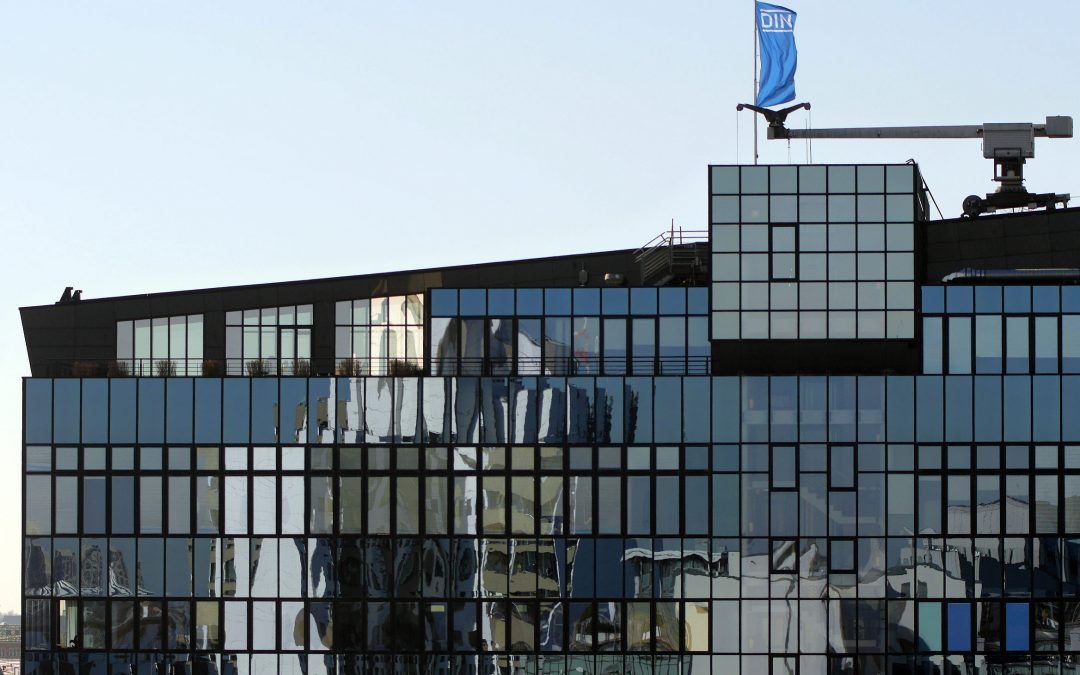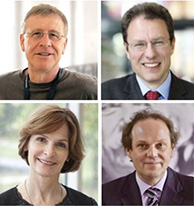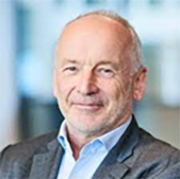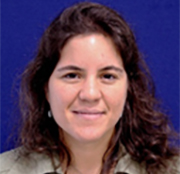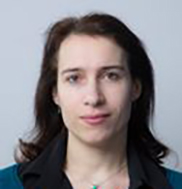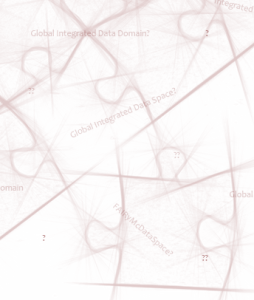
FDO Forum Contest ‘Name That Space’
FDO Forum Contest ‘Name That Space’
Published on March 16, 2022

At our recent January 2022 High Level Panel of Future Data Space (an expert exchange exploring a vision of key scientific, technical and policy pillars of a future global data space), we referred to that space, for lack of a better agreed-upon term, as the global integrated data space (GIDS). However, GIDS does not necessarily have the cachet of FAIR nor does it fare particularly well when discussing PIDs in the GIDS.
We are therefore holding a contest to find a suitable name for a term as convincing and memorable as ‘Internet’, ‘Web’, and ‘FAIR’, each of which were widely agreed upon across sectors and disciplines and which could easily be related to the major concepts and visions they were representing. The future global domain of integrated digital objects can be further characterized by: FAIR, maximally open, stable, persistent, and supporting automatic processing. We are inviting the FDO community and its collaborative partners to help us name this space by making suggestions.
The FDO Forum will evaluate the suitability of the submissions and invite the FDO community to discuss a shortlist. The proposer submitting the winning suggestion will receive a FREE TICKET to the FDO Forum’s upcoming First International Conference on FAIR Digital Objects in Leiden, The Netherlands, 26-28 October. There is no guarantee that the chosen term will become widely accepted, but the FDO Forum will do its best to disseminate the term and share it with its collaborative partners.
You may submit as many suggestions (in English) as your creativity allows by submitting the form below. Submissions must be received by the end of the day on 30 April.
Image by Alexas Fotos by Pixabay
Suggestions Received
| Suggestion 1 | Acronym | Suggestion 2 | Acronym | Comments | RecNo | ||||||||||||
|---|---|---|---|---|---|---|---|---|---|---|---|---|---|---|---|---|---|
| 2022-03-16 12:30:59 | Peter | Wittenburg | peter.wittenburg@mpcdf.mpg.de | Global Integrated Data Space | GIDS | Global Integrated Data domain | GIDD, GID2 | not satisfying since not a catch term and since the term space is already used by others with specific connotations | Accepted | 5232394594128780040 | 001 | WAAR | tina | ||||
| 2022-03-16 18:46:56 | IDS | Association | info@internationaldataspaces.org | International Data Space | IDS | suggested by a large industrial consortium associated with some restrictions; global might be better than international, as international sounds like limited to certain countries, global for sure integrates everybody in the world. | Accepted | 5232620164121550247 | 002 | WAAR | tina | ||||||
| 2022-03-17 07:10:42 | George | Strawn | gostrawn@gmail.com | FAIR Data Integrate | FDI | It includes the term FAIR which is important. | Accepted | 5233066414226348556 | 003 | WAAR | tina | ||||||
| 2022-03-18 10:47:35 | Karsten | Peters-von Gehlen | peters@dkrz.de | Data Unlimited | DU | envisions the possibilities | Accepted | 5234060554128257599 | 004 | WAAR | tina | ||||||
| 2022-03-18 10:50:09 | Bob | Hanisch | robert.hanisch@nist.gov | International, Interoperable, Integrated Data | I3D | three-dimensions of the data space, both I-3 and 3-D. I'd probably write the 3 as a superscript. Maybe not. global might be better than international, as international sounds like it's limited to certain countries, global for sure integrates everybody in the world. | Accepted | 5234062094124452109 | 005 | WAAR | tina | ||||||
| 2022-03-18 10:52:55 | Ivonne | Anders | anders@dkrz.de | Global Integrated Data Structure | GIDS | United Global Integrated Data Spaces | UGIDS | based on proposer #1. | Accepted | 5234063754125633128 | 006 | WAAR | tina | ||||
| 2022-03-18 11:04:52 | Ivonne | Anders | anders@dkrz.de | Global Data System | GDS | Accepted | 5234070924123571554 | 007 | WAAR | tina | |||||||
| 2022-03-18 11:10:36 | Christophe | Blanchi | cblanchi@dona.net | Interoperable Data Fabric | IDF | Data Fabric is a term used to reference distributed/cloud IT architectures. It is neutral as to its context and extent and focuses on interoperability as its core tenet. | Accepted | 5234074364126202173 | 008 | WAAR | tina | ||||||
| 2022-03-18 11:19:13 | George | Strawn | gostrawn@gmail.com | FAIR Digital Integrate | FAIR.DI, FDI | The term FAIR should be in the name. | Accepted | 5234079534124802168 | 009 | WAAR | tina | ||||||
| 2022-03-18 11:22:37 | George | Strawn | gostrawn@gmail.com | FAIR Digital Interoperate | FDI | OSI was the internet competitor in the 80-90s. O was for open, S was for systems, and I was for interconnect. Now we know that fair is better than just open, and we’re talking about data not systems. And our goal is still to interconnect—fair data, not open systems. Moreover, this name contains F for fair, the most popular acronym of all time. | Accepted | 5234081574129218223 | 010 | WAAR | tina | ||||||
| 2022-03-18 14:20:35 | Maggie | Hellström | margareta.hellstrom@nateko.lu.se | Integrated Digital Object space (that is fully) FAIR | InDOsFAIR | FAIR digital object Domain | FAIRdom | Interweb of FAIR Digital Objects | InterFAIR | I've tried to come up with acronyms that are easy to pronounce, regardless of the native language of the speaker. I think that quality may be more important than the acronym closely representing a specific phrase - this explanation or meaning can always be explained in an accompanying sentence. | Accepted | 5234188357997127296 | 011 | WAAR | tina | ||
| 2022-03-18 17:29:21 | Stuart | Chalk | schalk@unf.edu | globally organized online data space | GOOD Space | We can say we are in a "GOOD space" with our data...At a stretch you could also say we are dealing in FAIR GOODs... | Accepted | 5234301618217249581 | 012 | WAAR | tina | ||||||
| 2022-03-20 06:28:57 | Peter | Wittenburg | peter.wittenburg@mpcdf.mpg.de | FAIR Digital Object Domain | FAIR.DOD | Based on Record 9 | Accepted | 5235633374121587538 | 013 | WAAR | tina | ||||||
| 2022-03-20 06:31:02 | Peter | Wittenburg | Peter.Wittenburg@mpcdf.mpg.de | FAIR Digital Object Space | FAIR.DOS | Based on Record 9. Commenter 1 argues why not FDOS instead as acronym; Commenter 2 says, there is a nice progression: Internet --> Web --> Space | Accepted | 5235634624129896602 | 014 | WAAR | tina | ||||||
| 2022-03-20 06:33:24 | Peter | Wittenburg | peter.wittenburg@mpcdf.mpg.de | FAIR Dataverse | FDV | The term dataverse is already being occupied by a db company, verse is currently a hype term | Accepted | 5235636044128464244 | 015 | WAAR | tina | ||||||
| 2022-03-20 06:36:11 | Erik | Schultes | erik.schultes@go-fair.org | Web of FAIR Data and Services | WFDS | is the next layer of the internet, above WWW (so Internet-->WWW-->WFDS); is there a preference for "network" versus "web"? | Accepted | 5235637704123077372 | 017 | WAAR | tina | ||||||
| 2022-03-20 06:37:24 | Erik | Schultes | erik.schultes@go-fair.org | World Wide FAIR Web | WWFW | World Wide Web of FAIR Digital Objects | WWWFDO | Accepted | 5235638444121117457 | 018 | WAAR | tina | |||||
| 2022-03-20 06:39:52 | Erik | Schultes | erik.schultes@go-fair.org | FAIR Web | FW | FAIR Digital Object Web | FDOW | Accepted | 5235639924121487096 | 019 | WAAR | tina | |||||
| 2022-03-20 06:45:54 | Erik | Schultes | erik.schultes@go-fair.org | Web of FAIR Digital Objects | WFDO | Internet for Machines / Internet of Machines | IM | IM: stress the automated, machine-actionable elements | Accepted | 5235643544126627492 | 020 | WAAR | tina | ||||
| 2022-03-20 06:48:42 | Erik | Schultes | erik.schultes@go-fair.org | Web for Machines / Web of Machines | WM | World Wide Web for Machines / World Wide Web of Machines | WWWM | stress the automated, machine-actionable elements | Accepted | 5235645224124345491 | 021 | WAAR | tina | ||||
| 2022-03-20 06:52:41 | Merret | Buurman | buurman@dkrz.de | Data Conversation Circle | DCC, DCon | fdos in conversation | FC or FDOC | Less descriptive, less serious (and less on-point). But sounds a bit as if it was conversation *about* data, while it's meant to mean a conversation *between* data [objects]... | Accepted | 5235647614124126836 | 022 | WAAR | tina | ||||
| 2022-03-20 06:54:07 | Merret | Buurman | buurman@dkrz.de | chattering data, chattering objects, (chattering FDOs?), ((data gossip ???) | CD ChatD | Even less descriptive 🙂 | Accepted | 5235648474128586880 | 023 | WAAR | tina | ||||||
| 2022-03-20 06:56:08 | Yann | Le Franc | ylefranc@esciencefactory.com | Datanet | Datanet | Web of Data | WoD | Datanet: Data Network (should include data and data related services) | Accepted | 5235649684127059563 | 024 | WAAR | tina | ||||
| 2022-03-20 06:58:06 | Klaas | Wierenga | Klaas.wierenga@geant.org | Global Repository of Integrated Data | GRID | I think Grid is long enough dead to recycle 😉 | Accepted | 5235650864129098146 | 025 | WAAR | tina | ||||||
| 2022-03-20 07:00:16 | Fidan | Limani | f.limani@zbw.eu | Universal FAIR Resources | U FAIR | The term mimicks that of the URI/URL, and it stresses the fact that these are self-contained, universally addressable (Digital Object) resources. | Accepted | 5235652164127306874 | 026 | WAAR | tina | ||||||
| 2022-03-20 07:01:42 | Fidan | Limani | f.limani@zbw.eu | The Universal FAIR Domain | U FAIR Domain? | Similar to the previous version, but this time considering the "domain" aspect | Accepted | 5235653024121612867 | 027 | WAAR | tina | ||||||
| 2022-03-20 07:03:22 | Rob | Quick | fquick@iu.edu | Web of Interoperable Digital Objects | WIDO | Accepted | 5235654024124980147 | 028 | WAAR | tina | |||||||
| 2022-03-20 07:26:30 | Maggie | Hellström | margareta.hellstrom@nateko.lu.se | Interweb of FAIR Digital Objects | InterFAIR | see comment Rec# 11 | Accepted | 5235667904124717081 | 029 | WAAR | tina | ||||||
| 2022-03-21 09:17:52 | jc | burgelman | jean-claude.burgelman@vub.be | IDweb | inernational data web | it needs to be internationalits about data (and ideas )it remains a web | Accepted | 5236598717815247984 | 030 | WAAR | tina | ||||||
| 2022-03-21 15:12:24 | Koenraad | De Smedt | desmedt@uib.no | Interdata | The Interdata | FAIR Digital Object Trust | The Trust | No acronyms, but short and colloquial forms | Accepted | 5236811442285530217 | 031 | WAAR | tina | ||||
| 2022-03-23 15:14:15 | Maggie | Hellström | margareta.hellstrom@nateko.lu.se | The universal FAIR digital object space | UniFAIRse | A term that encompasses everything that is needed to manage, store and process FAIR digital objects 🙂 | Accepted | 5238540559318282451 | 032 | WAAR | tina | ||||||
| 2022-04-21 13:58:40 | Ulrich | Schwardmann | uschwar1@gwdg.de | FAIR Data Grid | FDG | FAIR Digital Object Grid | FDOG | The term GRID was mainly used for techniques to overcome institutional silos some years ago. It focused mainly on computation and service access. But the idea to overcome silos also perhaps even more valid for data. FDOs represent both: FAIRness and a universal and generic approach to access data. They provide a FAIR Data Grid. | Accepted | 5263515125854967241 | 033 | WAAR | tina | ||||
| 2022-05-12 23:46:54 | Kathryn | Knight | knight.kathryn@gmail.com | Building an Integrated Network of Global Objects | BINGO | Accepted | 5282012145116637066 | 034 | WAAR | tina | |||||||
| 2022-05-12 23:48:18 | Kathryn | Knight | knight.kathryn@gmail.com | Global Objects, Open Data | GOOD | Accepted | 5282012985112834679 | 035 | WAAR | tina | |||||||
| 2022-05-19 17:47:42 | Bonnie c | Carroll | bcarrolltn@gmail.com | World Brain | World Brain | This is a term that was used before its time but maybe the time is right today. Need to see if there may be a trademark. This gets to the connection of all FDOs like neurological connections and becomes the basis of a knowledge brain.HG Wells used the term in a book: https://www.google.com/books/edition/World_Brain/YtIQDQAAQBAJ?hl=en&gbpv=1&printsec=frontcover | Accepted | 5287844627111321661 | 036 | WAAR | tina | ||||||
| 2022-05-25 22:44:50 | Peter | Carr | pjc@me.com | world wide web of data | w3d | It's the world wide web of data!A natural extension of the world wide web. | Accepted | 5293206907918126094 | 038 | WAAR | tina | ||||||
| 2022-06-10 11:12:49 | Martin Thomas | Horsch | martin.thomas.horsch@nmbu.no | related reusable resources | RRR | The suggestion is to use RRR as a recognizable analogy to WWW. There are various ways to implement this. One R might be "resource", one could come from FAIR, and one might be "relation" or similar as in "edge in a knowledge graph".Now a common thought when looking for a FDO may be, I have some problem and "I am looking for related reusable resources". Where would you look? On the RRR. Therefore I recommend "Related Reusable Resources". | Accepted | 5306615693429393113 | 039 | WAAR | tina | ||||||
| 2022-06-30 15:02:17 | Franck | Cotton | franck.cotton@insee.fr | FAIR Space | FS | FAIR Ground | FG | First suggestion is a pun on "Airspace". Could also be FAIR Space One...Second suggestion is a reference to "Fairground" (https://www.merriam-webster.com/dictionary/fairground) | Accepted | 5324033375919677293 | 040 | WAAR | tina | ||||
| 2022-07-15 22:12:15 | Tina | Loo | tina.loo@naturalis.nl | The Fabric | The Fab, The Fabric | At the point that this term will become widely used, FAIR will have become a standard for interoperability so it will not be relevant for FAIR to be part of the name. The Fabric represents the interwoven, interconnected nature of a cohesive whole. | Accepted | 5337251354124635868 | 041 | WAAR | tina |

